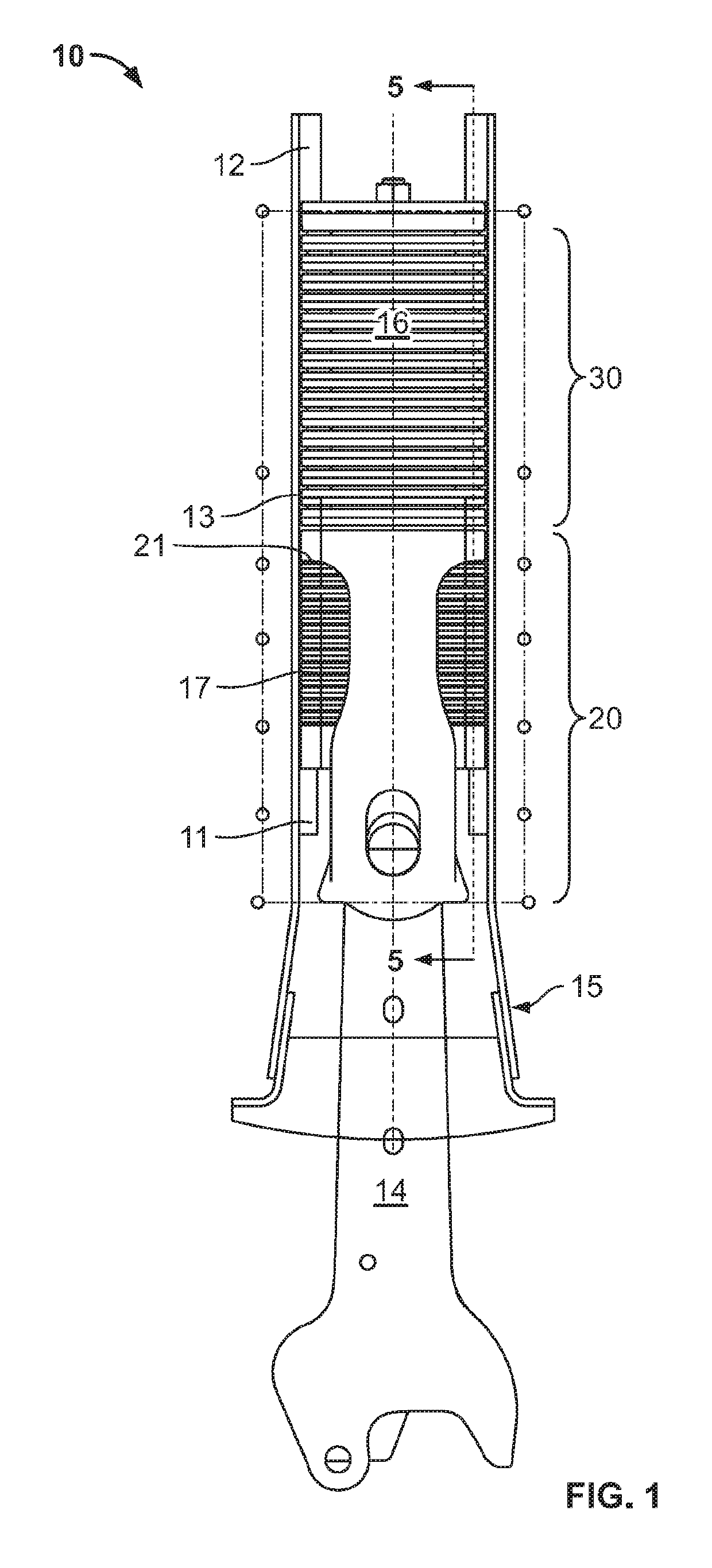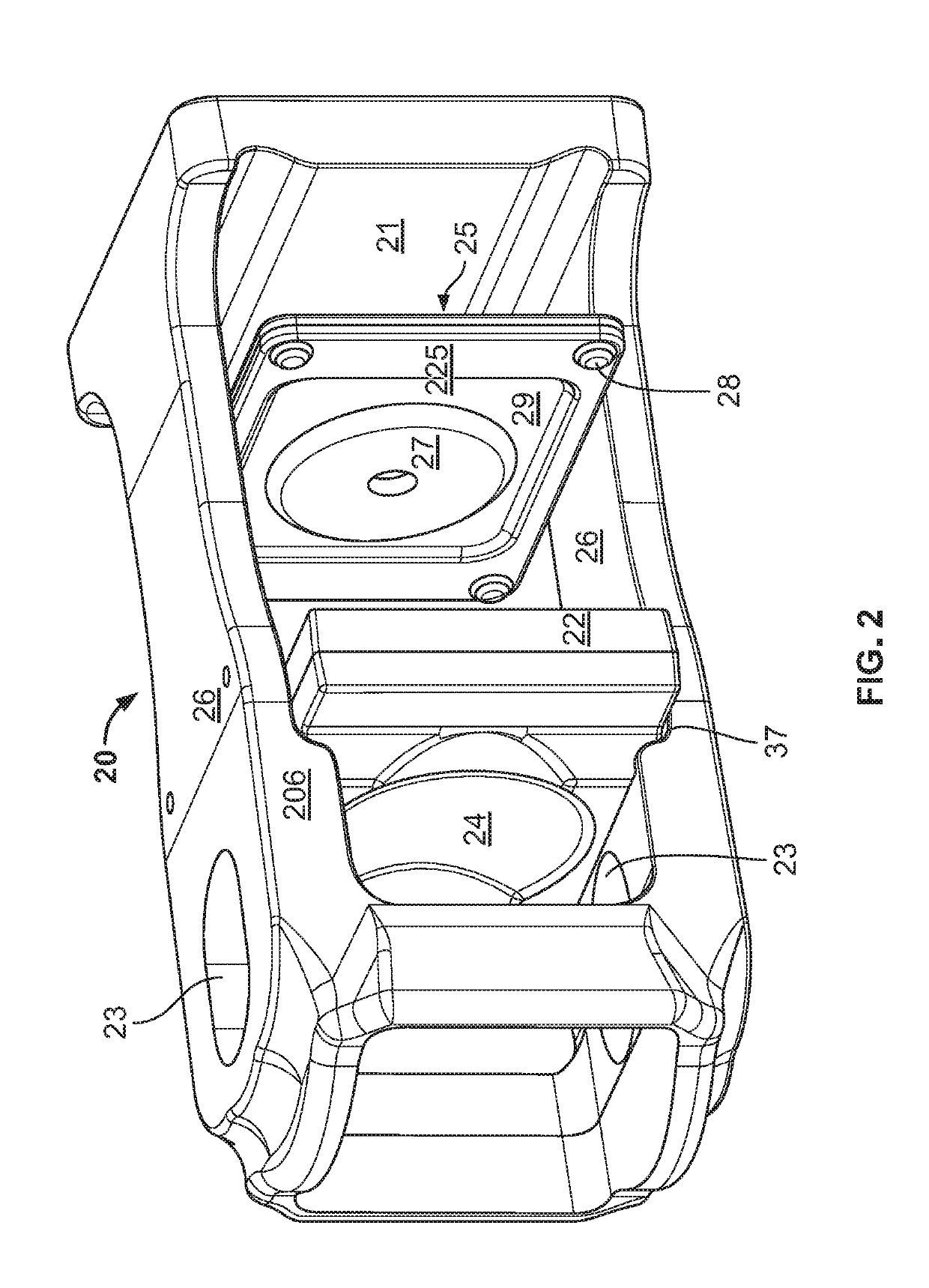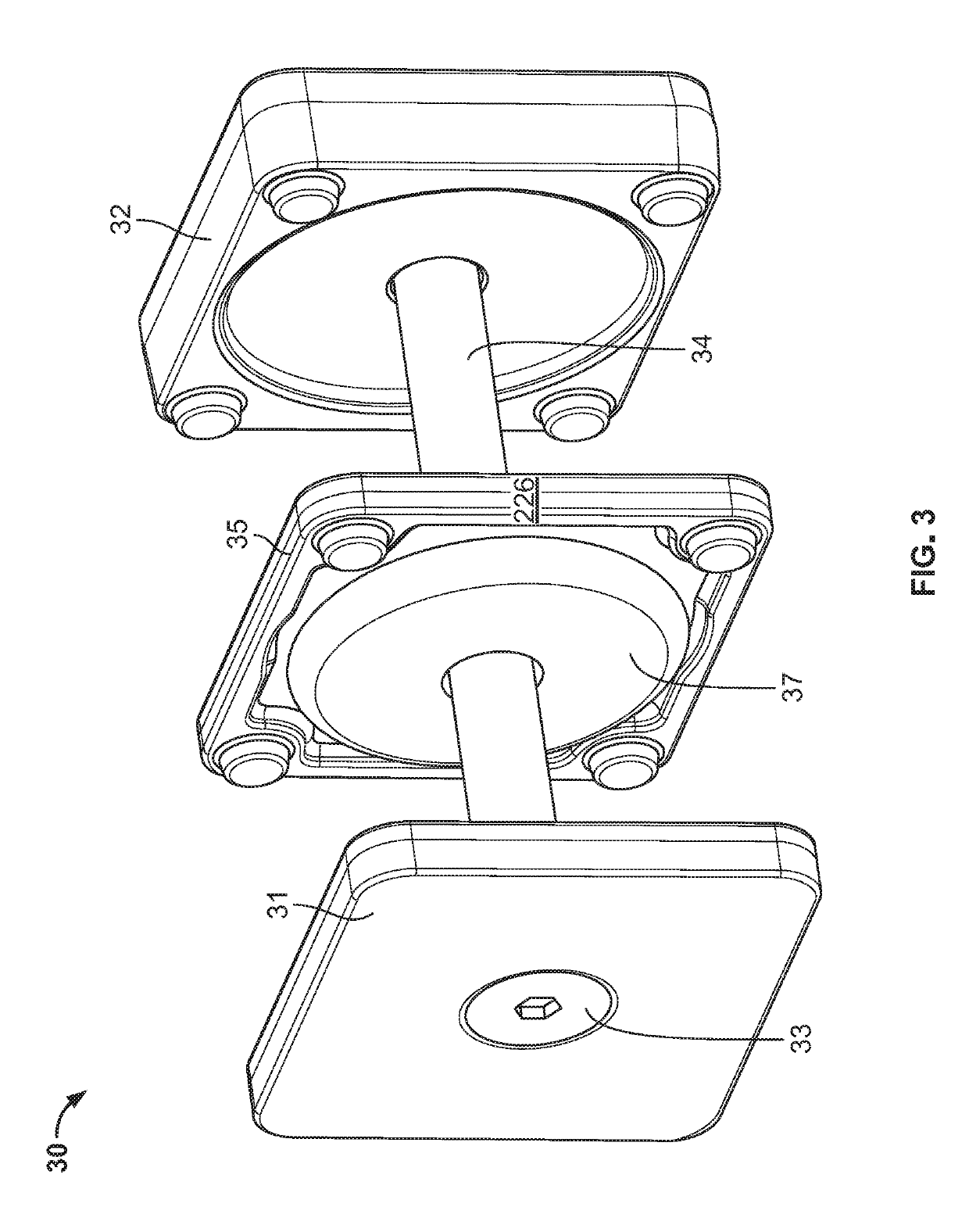Cushioning apparatus for a railway car
- Summary
- Abstract
- Description
- Claims
- Application Information
AI Technical Summary
Benefits of technology
Problems solved by technology
Method used
Image
Examples
Embodiment Construction
[0024]Directions and orientations herein refer to the normal orientation of a railway car in use. Thus, unless the context dearly requires otherwise, the “front” of a coupler is in a direction away from the body of the car and “rear” is in a direction toward the center of the car. Likewise, the “longitudinal” axis or direction is parallel to the rails and in the direction of movement of the railway car on the track in either direction. The “transverse” or “lateral” axis or direction is in a horizontal plane perpendicular to the longitudinal axis and the rail. The term “inboard” means toward the center of the car, and may mean inboard in a longitudinal direction, a lateral direction, or both. Similarly, “outboard” means away from the center of the car. “Vertical” is the up-and-down direction, and “horizontal” is a plane parallel to the rails including the transverse and longitudinal axes.
[0025]“Elastomer” and “elastomeric” refer to polymeric materials having elastic properties so tha...
PUM
 Login to View More
Login to View More Abstract
Description
Claims
Application Information
 Login to View More
Login to View More - R&D
- Intellectual Property
- Life Sciences
- Materials
- Tech Scout
- Unparalleled Data Quality
- Higher Quality Content
- 60% Fewer Hallucinations
Browse by: Latest US Patents, China's latest patents, Technical Efficacy Thesaurus, Application Domain, Technology Topic, Popular Technical Reports.
© 2025 PatSnap. All rights reserved.Legal|Privacy policy|Modern Slavery Act Transparency Statement|Sitemap|About US| Contact US: help@patsnap.com



